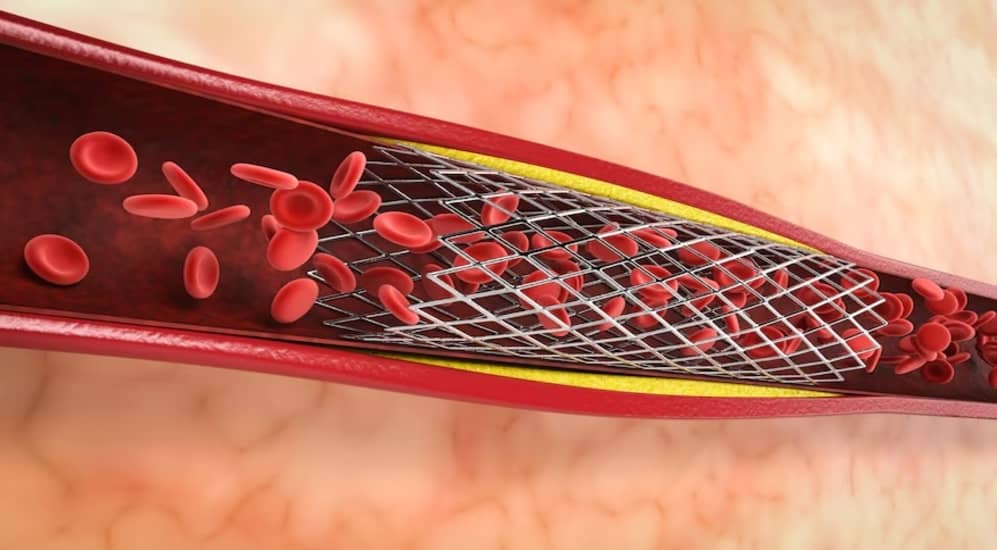
Growing rates of elevated cholesterol in young people are a worrying trend in the health landscape during a time of changing eating habits, sedentary lifestyles, and an increased dependence on technology. Indraprastha Apollo Hospital in New Delhi’s Dr. Suranjit Chatterjee, a Senior Consultant in Internal Medicine, stresses the vital significance of early screening in the fight against this growing health issue.
Once thought to be a disease mostly affecting the elderly, high cholesterol is now worryingly spreading to younger populations. This change is multifaceted, resulting from the intricate interactions between environmental factors, genetic predispositions, physical activity levels, and dietary patterns. Elevated cholesterol levels at an early age are a result of the modern diet, which is high in processed foods, refined sugars, and saturated fats.
Furthermore, the issue is made worse by the sedentary character of modern lifestyles, since inactivity leads to weight gain, insulin resistance, and dyslipidemia. In addition to the widespread use of digital gadgets that frequently replace outdoor activities, the sedentary trend contributes to a generation that is more vulnerable to metabolic problems such as high cholesterol.
Another important factor that predisposes people to high cholesterol is heredity. Due to the fact that familial hypercholesterolemia, a hereditary condition marked by elevated levels of low-density lipoprotein (LDL) cholesterol, can present in infancy and adolescence, early detection and treatment are crucial.
The importance of early screening programs is emphasized by Dr. Chatterjee to identify people who are at risk and launch prompt interventions. Healthcare professionals can identify high-risk individuals and, if necessary, implement targeted lifestyle adjustments and medication by proactively screening young people. Prompt action not only slows down the advancement of cholesterol-related issues but also develops long-term behaviors that support cardiovascular health.
The fight against young people’s growing cholesterol levels appears to revolve around education. Educating people on the influences of genetics, physical exercise, and diet on cholesterol levels promotes proactive health management and helps them make well-informed decisions. It takes cooperation between community organizations, schools, and healthcare professionals to spread correct information and foster a culture of preventative healthcare from an early age.
Creating a welcoming atmosphere that encourages healthy habits is also crucial. Prioritizing stress management techniques, physical activity opportunities, and access to wholesome diets should be a priority in communities, schools, and workplaces. Policymakers can foster an environment that is ideal for cardiovascular health by addressing the structural determinants of health.
It is important to recognize that technology can help spread health awareness and make early detection easier. Innovative approaches to risk assessment, health education, and remote monitoring are provided via wearable technology, telehealth platforms, and mobile applications. Healthcare professionals can reach a wider audience, interact with younger populations, and encourage people to actively manage their cholesterol by leveraging technology.
To control cholesterol, Dr. Chatterjee recommends a comprehensive strategy that includes dietary changes, frequent exercise, stress reduction, and medication when necessary. Tailored care regimens that are specific to the preferences and risk profile of each patient produce the best results and encourage long-lasting behavioral changes.
To sum up, the increasing incidence of hypercholesterolemia in the youth demands a proactive, multimodal strategy for care and prevention. The implementation of early screening programs, in conjunction with comprehensive lifestyle changes and technological advancements, is critical in mitigating the growing health epidemic. We can empower people to lead healthier lives and lessen the burden of cholesterol-related issues on both individuals and society at large by emphasizing preventative healthcare and promoting a culture of health literacy.
Entrepreneurship is all about telling your story. In SwiftNlift Business magazine, we promote and share stories and adventures of young and successful entrepreneurs who are overcoming startup challenges on their way to success. We allow digitally linked content to be uploaded and distributed globally.
20-April-2024, at time: -5pm
21-April-2024 , at time: -5pm
27-April-2024, at time: -5pm
Copyright © 2023 Swiftnlift Media And Tech LLP All rights reserved.